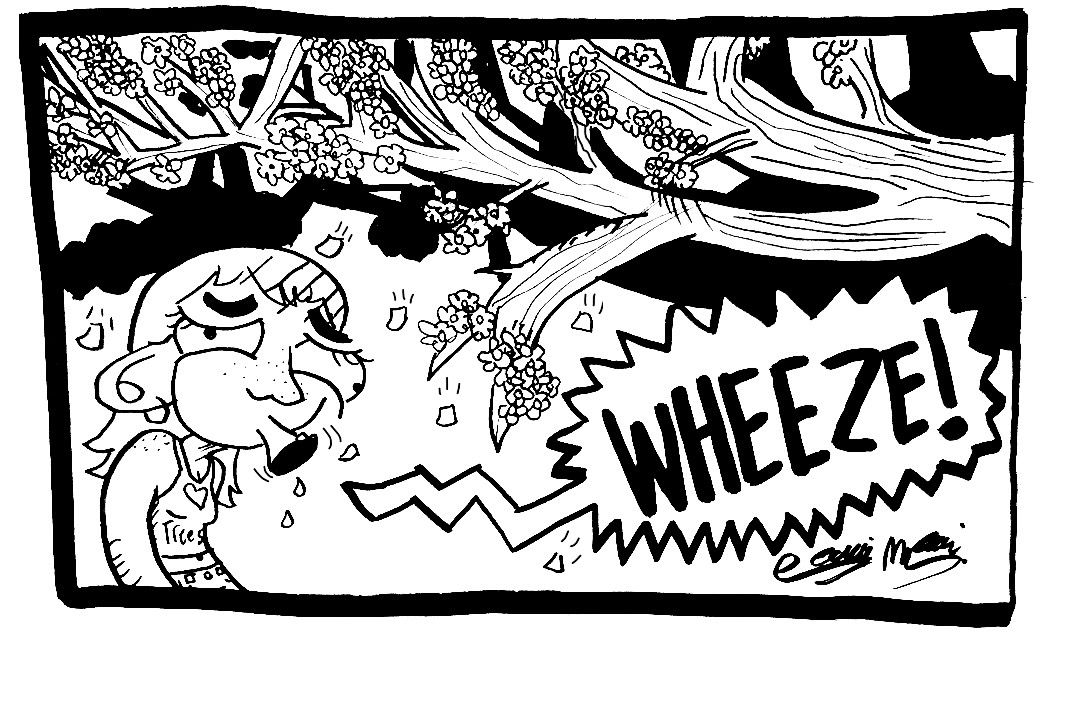It’s common for language classes to fill up quickly during class registration, and romance language courses are certainly the most popular. But students who want to learn a new language shouldn’t be discouraged if they don’t get into a French or Spanish class: Ancient languages are just as – if not more – valuable to learn.
Learning another language has a multitude of benefits. In fact, studies show that knowing a second language may protect against Alzheimer’s disease. But some languages are overlooked as students tend to gravitate toward those that are still spoken around the world today, often discounting dead languages as useless. Although the focus of dead languages is less on speaking and more on reading, students can still benefit from the mental exercise. Plus, students are able to learn about the origins of modern languages and read works by well-known ancient authors.
A language is considered “dead” when it’s no longer spoken every day. GW currently offers two dead languages: Classical Greek and Latin. Although these languages are no longer spoken, they are valuable to learn. Learning one or both of these languages allows one to more fully study Classical Greece and Rome, which have greatly influenced western society and thought today. They have also provided the stem of many English words.
When I got to GW, I signed up for classical Greek on a whim. Even though I took Spanish in high school, Spanish courses filled up quickly during registration. Greek seemed interesting, and if a Spanish class opened up, I thought I could transfer into it. I ended up not dropping the class and deciding to continue with Greek. Although the classes are not easy, translating original passages from the Iliad gives me a sense of intellectual satisfaction.
While many famous works written in Greek and Latin have been translated into English, much is lost in the translations. Translations often change sentence structures and phrases so the works sound natural in English, but then a reader will lose the poetic quality or the exact meaning of the original text. It is only by looking at the original texts that one can surmise its true, original meaning – not someone else’s interpretation.
Through taking an ancient language, I have learned things like parts of speech, case function, voice and the clause types. When we first started discussing things in Greek class like the nominative, genitive, accusative and vocative cases, I was lost. But now these different aspects of grammar have stuck with me and I am able to apply them to English, as well.
Taking a dead language also provides a foundation for other subjects. Latin provides a basic background to many romance languages including Spanish, French, Portuguese, Italian and Romanian. Students interested in science, especially medicine, or law would benefit from learning about the origins of the terminologies in their fields by taking Latin or Greek. This semester, GW even offered a class called Ancient Medicine and Modern Medical Terms, which allowed students to do just that.
Learning any language is beneficial to a student’s education, and there is no denying that gaining the ability to speak with people from a different culture is worthwhile. While I likely will not be asked to read a document in classical Greek in my future career, I do know that I will be asked to communicate and to think critically, which Greek has helped me do. By taking a dead language, students can dive into the past to better understand language today.
Kelly Skinner, a freshman majoring in political science, is a Hatchet opinions writer. Want to respond to this piece? Submit a letter to the editor.



